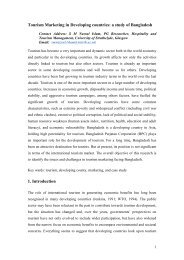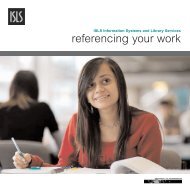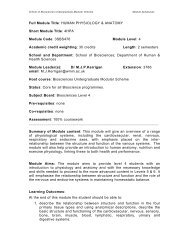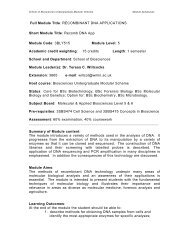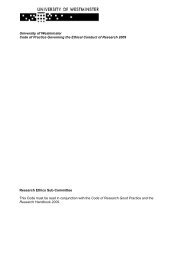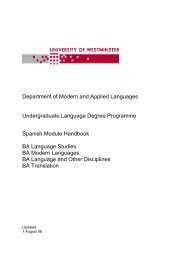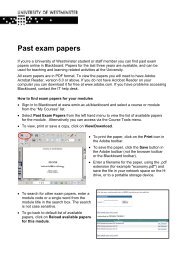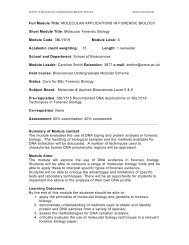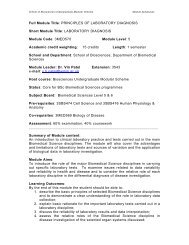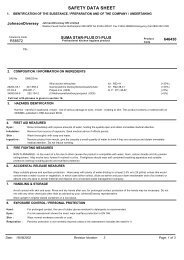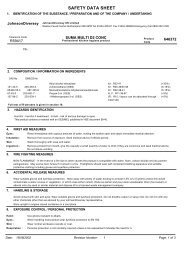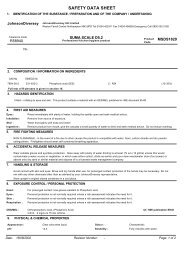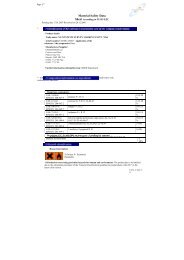CONTENTS 1. Introduction 1.1 Course Outline 1 1.2 Introduction ...
CONTENTS 1. Introduction 1.1 Course Outline 1 1.2 Introduction ...
CONTENTS 1. Introduction 1.1 Course Outline 1 1.2 Introduction ...
Create successful ePaper yourself
Turn your PDF publications into a flip-book with our unique Google optimized e-Paper software.
Teaching and Learning Methods:<br />
Supervision / consultation with supervisor.<br />
Self-directed facilities-based work and report preparation.<br />
Assessment Rationale:<br />
The learning outcomes are assessed from the submission of five items:<br />
<strong>1.</strong> Initial proposal submitted at the beginning of year three.<br />
2. Update proposal submitted halfway through semester <strong>1.</strong><br />
3. Literature survey submitted at the end of semester <strong>1.</strong><br />
4. A ‘log book’ charting the progress of the project in comparison from proposal, through<br />
planning to execution.<br />
5. The project itself, which will be practical and a conventional written report with any material<br />
arising from production aspects of the Major Project.<br />
These are assessed by the project supervisor and at least two other members of the course team.<br />
Overall assessment criteria:<br />
The extent to which the student is able to demonstrate an ability to:<br />
Conduct a pre-planned project.<br />
Use presentation techniques appropriate to the project.<br />
Show evidence of application of appropriate concept, skills, theories and technologies to the project.<br />
Adhere to the project plan or provide the rationale for necessary departures from it.<br />
Assessment Methods and Weightings:<br />
The weightings applied to the necessary submissions are:<br />
Proposals 1 and 2: 5%<br />
Literature Survey: 5%<br />
The project log: 10%<br />
The Major Project: 80%<br />
The Major Project is assessed against criteria listed below using weightings agreed between the<br />
student and the Project supervisor at the commencement of the Major Project, informed by the<br />
outcome of the Project Planning module, and forming a Learner Contract. Criteria for assessment of<br />
the Major Project, with ranges for the agreed weightings, are:<br />
Intellectual level and strength of the work 20<br />
Originality and creativity displayed 20<br />
Technical content 20<br />
Quality of production and presentation of the<br />
report and any visual material 15<br />
Reported adherence to the project plan or the<br />
rationale for necessary departures from it 5<br />
To a total of: 80<br />
Sources:<br />
It is expected that the literature searched during the planning phase will form the basis of the reading<br />
required for the Major Project.<br />
Suggested reading for the preparation of the project include:<br />
D.E.Avison, The Project Report: A guide for students, (3 rd ed.), Cambridge (1989).<br />
R.Barrass, Students Must Write: A guide to better writing in course work and examinations, Methuen,<br />
London (1982).<br />
R.Berry, The Research Report: How to Write It, (3 rd ed.), Routledge, London(1994).<br />
K.L.Turabian, A Manual for Writers of Term Papers, Theses and Dissertations, (6 th ed.), The University<br />
of Chicago Press, Chica<br />
DPI_Hbook 78 ©University of Westminster



